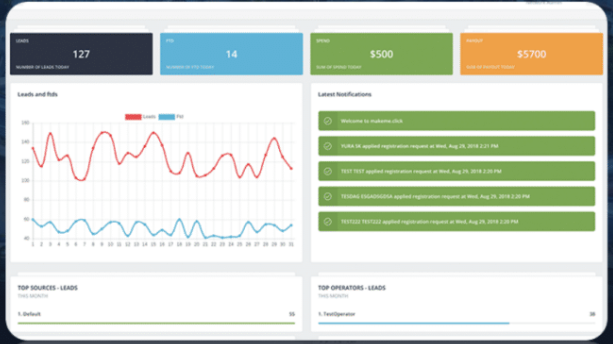Types of Financing Options for Commercial Truck Fleets

Commercial truck fleets play a pivotal role in driving the economy, ensuring the efficient movement of goods across vast distances. These fleets are the backbone of the logistics industry, facilitating the seamless flow of products from manufacturers to consumers. However, the acquisition and maintenance of a commercial truck fleet come with significant financial challenges.
The costs associated with purchasing, operating, and maintaining these vehicles can be daunting for businesses. This is where financing options come into play, providing the necessary financial support to manage these substantial investments. Understanding the various financing options available is essential for fleet operators to make informed decisions that will sustain and grow their operations.
Equipment Loans
Equipment loans are a popular financing option for acquiring commercial trucks. In this arrangement, the truck itself serves as collateral, which can provide lenders with a sense of security and often result in lower interest rates for the borrower. These loans typically offer longer terms, making monthly payments more manageable for businesses.
The primary advantage of equipment loans is that they allow companies to spread the cost of the truck over several years, preserving cash flow for other operational needs. However, a potential disadvantage is the risk of defaulting on the loan. If a business fails to make payments, the lender can repossess the truck, which could disrupt operations.
Small Business Administration (SBA) Loans
SBA loans are another viable option for financing commercial truck fleets. These loans are partially guaranteed by the government, which reduces the risk for lenders and often leads to more favorable loan terms for borrowers. Benefits of SBA loans include lower down payments and longer repayment periods, which can significantly ease the financial burden on small businesses.
However, SBA loans come with potential drawbacks, such as stricter qualification criteria and a more rigorous application process. Businesses may need to provide extensive documentation and meet specific requirements to qualify for these loans.
Business Lines of Credit
Business lines of credit offer a flexible financing solution for commercial truck fleets. Unlike traditional loans, a line of credit provides businesses with access to a predetermined amount of funds that can be used as needed. This flexibility allows companies to draw on the line of credit to cover various fleet-related expenses, such as purchasing new trucks, maintaining existing ones, or managing seasonal cash flow fluctuations.
The primary advantage of a business line of credit is its adaptability; businesses only pay interest on the amount they use, making it a versatile financial tool. However, it’s important for companies to manage their credit responsibly to avoid accruing excessive debt.
Loan Sources
When seeking financing for a commercial truck fleet, it’s essential to consider the various sources of loans available. Each source has its own advantages and drawbacks:
Banks
Traditional banks are a common source of equipment loans. They often offer lower interest rates and longer repayment terms compared to other lenders. However, banks typically have stricter requirements and a more rigorous approval process. Borrowers may need to provide extensive financial documentation and demonstrate a strong credit history.
Direct Lenders
These lenders specialize in equipment financing and may offer more tailored loan options for commercial trucks. Direct lenders can be more flexible than banks, providing faster approval times and more lenient qualification criteria. However, their interest rates may be slightly higher than those offered by banks.
Online Lenders
Online lenders have become increasingly popular due to their convenience and speed. They often provide quicker access to funds with a simplified application process. While online lenders may have higher interest rates and shorter terms, they are more likely to work with businesses that have less established credit or shorter operating histories.
Factors Affecting Loan Approval
Lenders consider several factors when evaluating loan applications for commercial truck financing. Understanding these factors can help businesses improve their chances of approval:
- Credit Score: A strong credit score is crucial for securing favorable loan terms. Lenders use credit scores to assess the risk of lending to a business. Higher scores typically indicate a lower risk, leading to better interest rates and loan terms.
- Revenue: Consistent and robust revenue streams are essential for demonstrating a business’s ability to repay the loan. Lenders look for stable and sufficient income to ensure that the business can meet its financial obligations.
- Business History: The length of time a business has been operating can significantly impact loan approval. Lenders prefer to work with established businesses that have a proven track record of success. A longer business history can provide reassurance of stability and reliability.
Key Takeaways
Choosing the right financing option is crucial for the success and sustainability of your commercial truck fleet. The right choice can provide the necessary financial support, enabling your business to acquire and maintain the vehicles essential for efficient operations. It can also help you manage cash flow, reduce financial stress, and ensure long-term growth.
It’s important to research and compare various financing options based on your specific needs and circumstances. Consider the benefits and drawbacks of equipment loans, SBA loans, and business lines of credit. Evaluate different loan sources, such as banks, direct lenders, and online lenders, to find the best fit for your business. By taking the time to thoroughly assess your options, you can make an informed decision that will drive your business forward and keep your fleet running smoothly.


